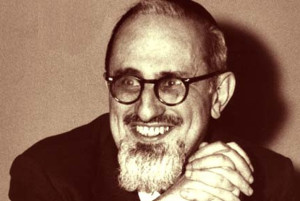Hilbert requires Completeness for an Axiomatic System; that the system itself be the basis for making all inferences and conclusions –But the Torah cannot be reduced to a mathematical, deductive system. It is a system of law. The System can never be incomplete. One must make a Halachic Ruling when practical questions arise.
Furthermore, one of the axioms of the Torah is the possuk that one cannot deviate from what the Rabbis tell us, either to the right or left. This opens the door to Torah Sheh B’al Peh, the Oral Law. Within the framework of Axioms, we literally have an open door into a new world of Psak, which necessarily includes the agency of a human being, a Dayan, an expert in Torah Law, to decide what the Halacha is.
Additionally, it is the nature of the Oral Law that it cannot be written down. “It is not proper to write down the Oral Law because there is no end to the details of the Law.”
Thirdly, Halacha and Halachic Decisions are not arbitrary logical systems, nor are they the product of private interests.
“The Torah was given to the people of Israel. It obligates the Jew to study it and to seek to understand it; it demands of the sages of Israel that they interpret it and teach it as a guidance and law for everyday living. Since the Torah was not given to angels but to human beings, and since it depends on interpretation and understanding by human beings, whatever is discovered in it by human beings who accept the Torah as G-d’s revelation to the Jewish People at Sinai and study it is indeed the truth of the Torah.” (Eliezer Berkovits, Not in Heaven, p 51.)
לא בַשָּׁמַיִם הִוא
The Torah is not in Heaven. Whereas in the development of English and American Law, jurists and theorists would agonize over whether we have a government of men or a government of laws – we see in the nature of Torah Sheh B’al Peh the necessity of men, but not just any layman (hediot), to implement the Law. A Chacham, according to Rav Moshe Feinstein, is one who has encompassed all of the writings of Chazal, the entire Mishneh, Gemara, Rishonim and Acharonim and only after this is he qualified to make Halachic decisions based on his own internal intuitions and understanding of Chazal. Both his integrity and his Fear of Heaven (Yirat Shamayim) qualifies him for this. Therefore his selflessness and devotion to Am Yisroel is recognized by the Tzibbur, the Jewish Community. (notes xiv,xv) At the same time, if a person qualifies to such a degree, according to Rav Moshe, he does not have a right to withdraw from the Halachic decision making process.
There is a transition from intuition to Halacha in Jewish thought. In the Hakdama to Mitzvat HaBayit by Rabbi Yosef Epstein ztz’l, section two, he outlines in detail the transition from the Intellect and Intuition of the Avot to the requirement to observe the Mitzvot because of Kabbalat HaTorah, (the formal acceptance of the Torah by the Jewish People). Rabbi Epstein observes that human intellect is an intermediary between G-d and Man, but it is a fluid situation, a mixture which he describes as
: נתמזגה תורה הכרתו של אדם עם תורת השמים-צורה חדשה.
מצות
הבית הקדמה
p.22
“The Torah of human understanding and obligation is mixed with the Torah of the Heavens to form a new creation.”
click here for The Torah as a System of Thought

